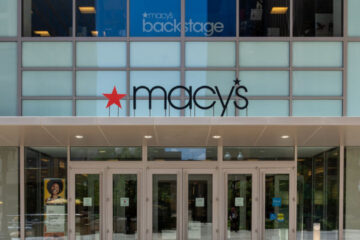Even before this weekend’s protest violence, the public sentiment concerning driverless ride-sharing vehicles has been tense.
On Sunday, June 8, in Los Angeles, several Waymo autonomous taxis were set ablaze during protests against ICE raids in the city.
According to the Los Angeles Times, protesters who had converged on downtown L.A. Sunday morning to protest the immigration enforcement raids ordered by President Donald Trump closed traffic for several hours.
Related: Tesla’s robotaxi rollout is alarming the public, new report shows
As police officers pushed protesters back to clear the roadway, a group descended upon five Waymo taxis lined up on the street around 5 p.m. local time.
The vehicles’ tires were slashed, the windows were smashed, and graffiti was sprayed across the cars.
Some protesters even threw Lim E-scooters into the shells of the burning vehicles.
By Monday morning, the Los Angeles police Department declared downtown L.A. to be an unlawful assembly area and ordered protesters to leave following a third day of protests.
While the images of the carnage are stunning, this isn’t the first time Waymo vehicles have been targeted for vandalism. Waymo did not immediately respond to TheStreet’s request for comment.
🚨 Rioters in L.A. are burning self-driving Waymo cars, each worth $600K. Police are asking the company to shut down the app as people lure cars into protest zones and set them on fire.#LosAngelesProtests #california pic.twitter.com/dp9jEqXaSp
— Tom Valentino (@TomValentinoo) June 9, 2025
West Coast citizens don’t seem to like autonomous vehicles
California, the home of Silicon Valley, has been at the cutting edge when it comes to autonomous driving. It was one of the pioneering states to allow companies to test out their new tech.
Waymo, owned by Google parent company Alphabet (GOOGL) , operates in the state, along with startups Apolo, AutoX, Nuro, WeRide, and Zoox.
But with so many options, Californians may be getting autonomous vehicle fatigue.
Nearly 80% of California voters support requiring a human safety operator in self-driving trucks and delivery vehicles, and just 33% of voters express a favorable general impression of autonomous vehicles.
Related: Tesla rival makes huge announcement about what’s coming in 2026
Actions on the street seem to bear out these statistics.
This weekend wasn’t the first time protesters in California have targeted autonomous vehicles.
One group of protestors, Safe Street Rebels, has been fighting against autonomous driving for years. While they are not just anti-autonomous driving (they oppose pretty much all driving), they have seen great success using traffic cones to render the vehicles useless.
The safety systems on the vehicles recognize traffic cones as being major red flags, so a single cone can disable a Waymo until someone comes and removes it.
Meanwhile, Safe Street Rebels say that their objections regarding autonomous driving are numerous. Issues include a lack of accountability, the fact that their fleets “cannot be cited for traffic violations,“ increased traffic, the effect on human taxi drivers, and surveillance, among other concerns.
The group has documented hundreds of crash and traffic incidents involving autonomous vehicles over the years and says the vehicles make California streets more dangerous, not safer.
Tesla enters the autonomous driving fray this summer in Austin
Tesla plans to bring its own autonomous vehicles to the streets of Austin, Texas, for the first time in mere days.
The company’s robotaxi program has had its share of fits and starts, but it finally appears ready for the spotlight. A new report suggests that the public isn’t ready for the moment, however.
“Consumers are skeptical of the full self-driving (FSD) technology that undergirds the robotaxi proposition, with 60% considering Tesla’s full self-driving ‘unsafe,’ 77% unwilling to utilize full self-driving technology, and a substantial share (48%) believing full self-driving should be illegal,” the May 2025 edition of the Electric Vehicle Intelligence Report (EVIR) states.
It adds, though, that younger, higher-income individuals who live in urban areas are more open to autonomous driving technology.
Despite trepidation from the public, Waymo One registers over a quarter of a million paid weekly trips across Phoenix, San Francisco, Los Angeles, and Austin, with plans to expand in Atlanta, Miami, and Washington, D.C., in 2026.
Waymo’s current fleet features over 1,500 vehicles spread across its four current host cities, but by next year, it expects to more than double its fleet with more than 2,000 new additions.
Related: Elon Musk’s feud with Trump is hurting an unexpected investment


